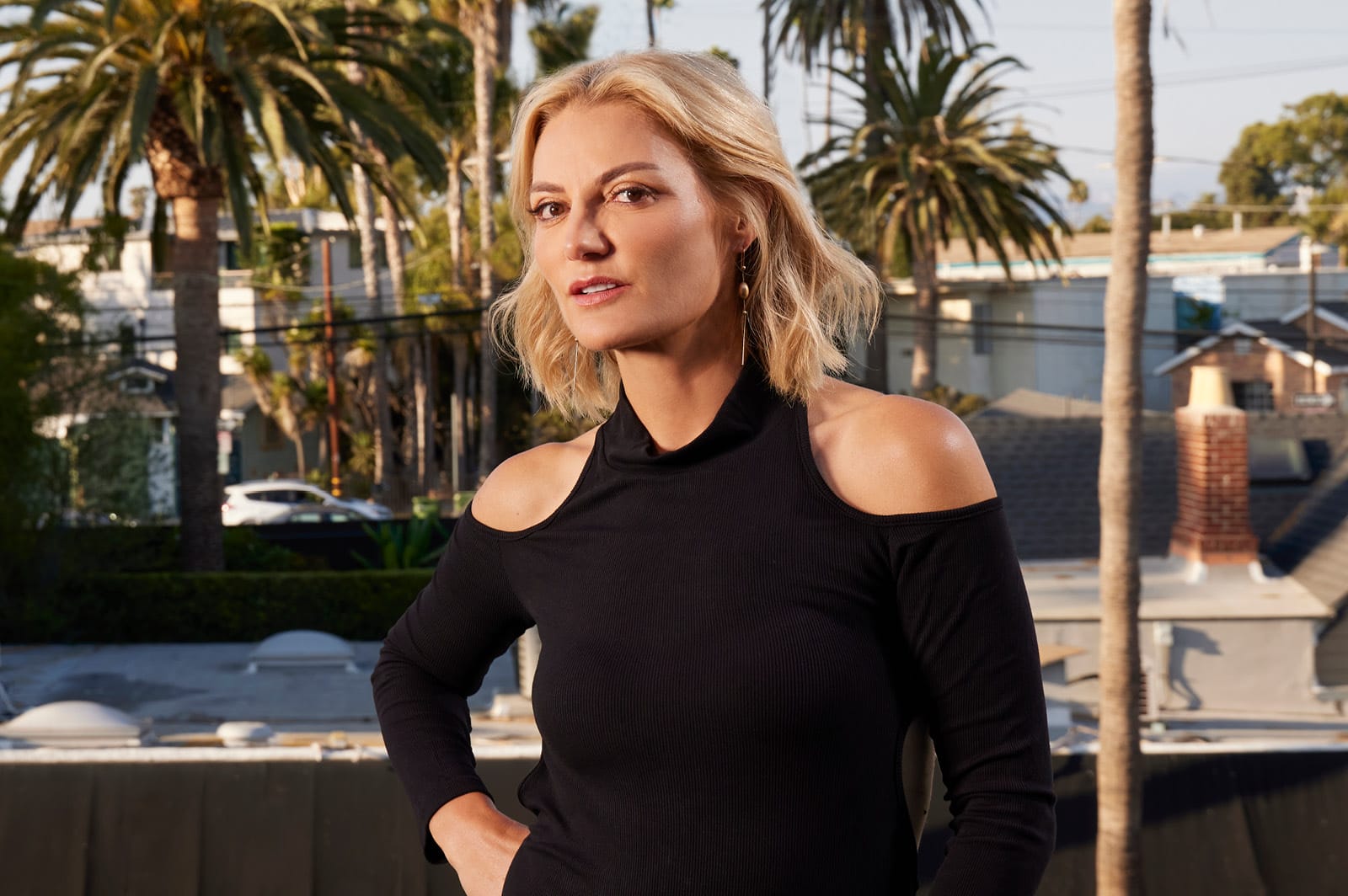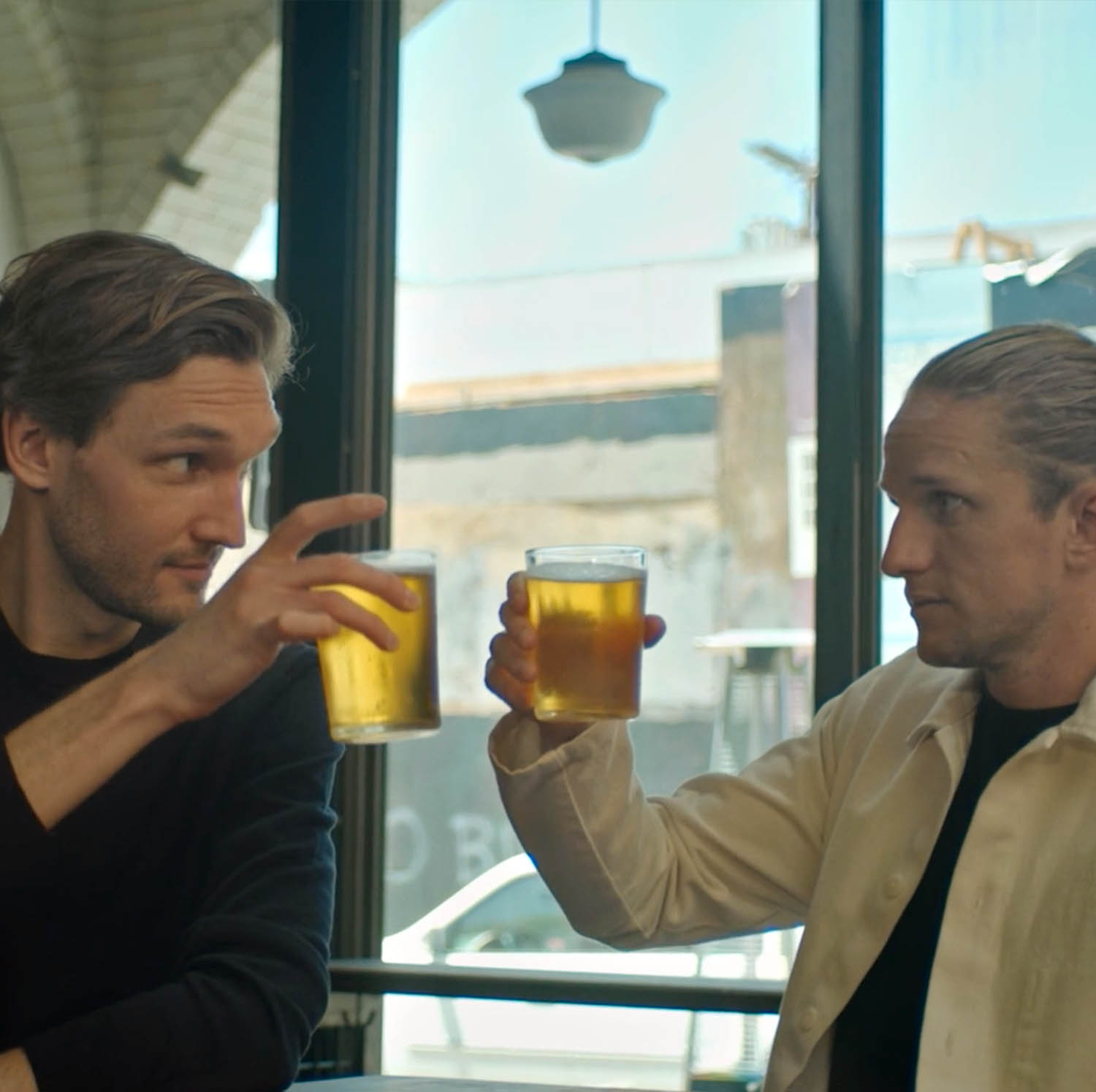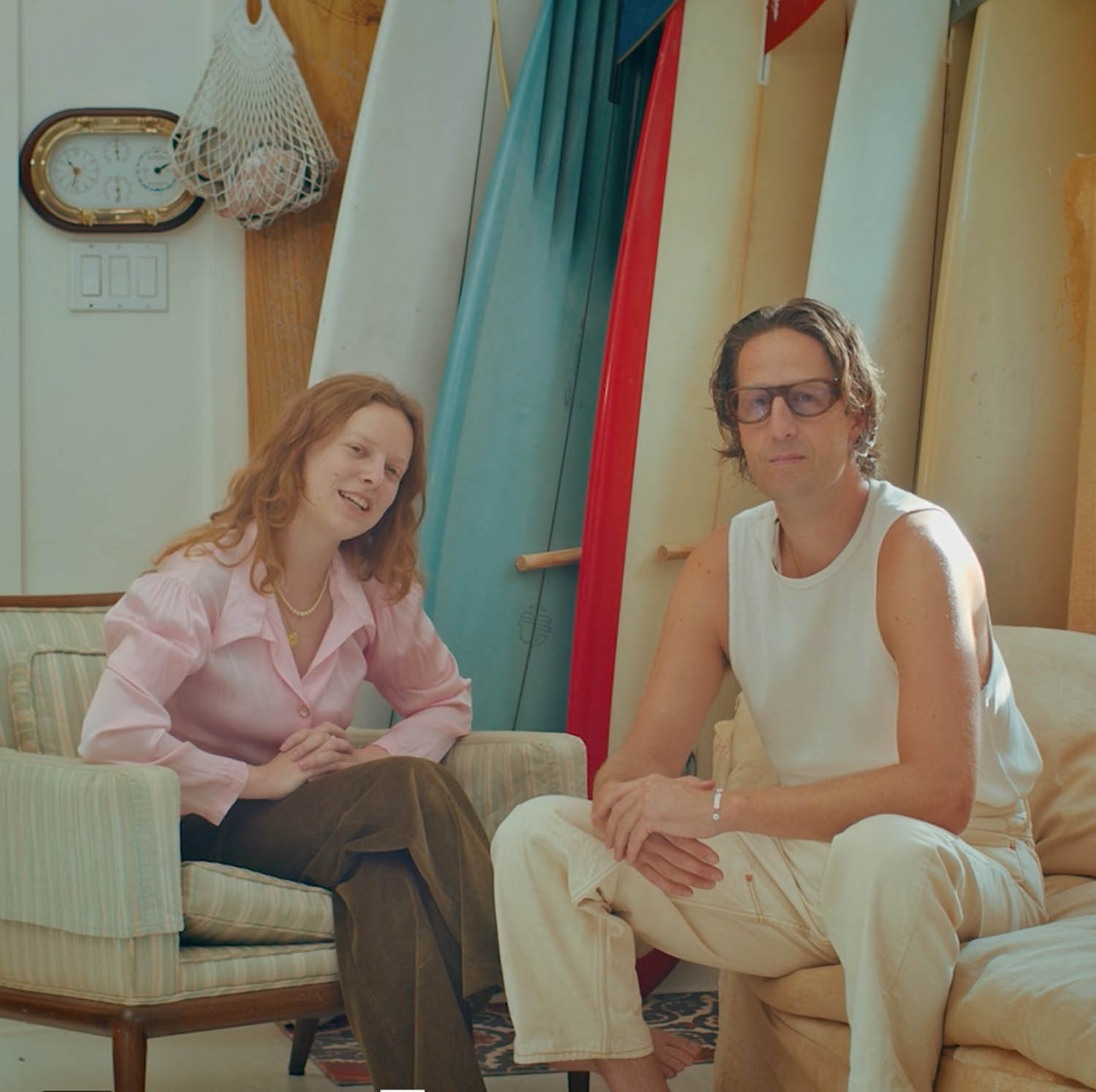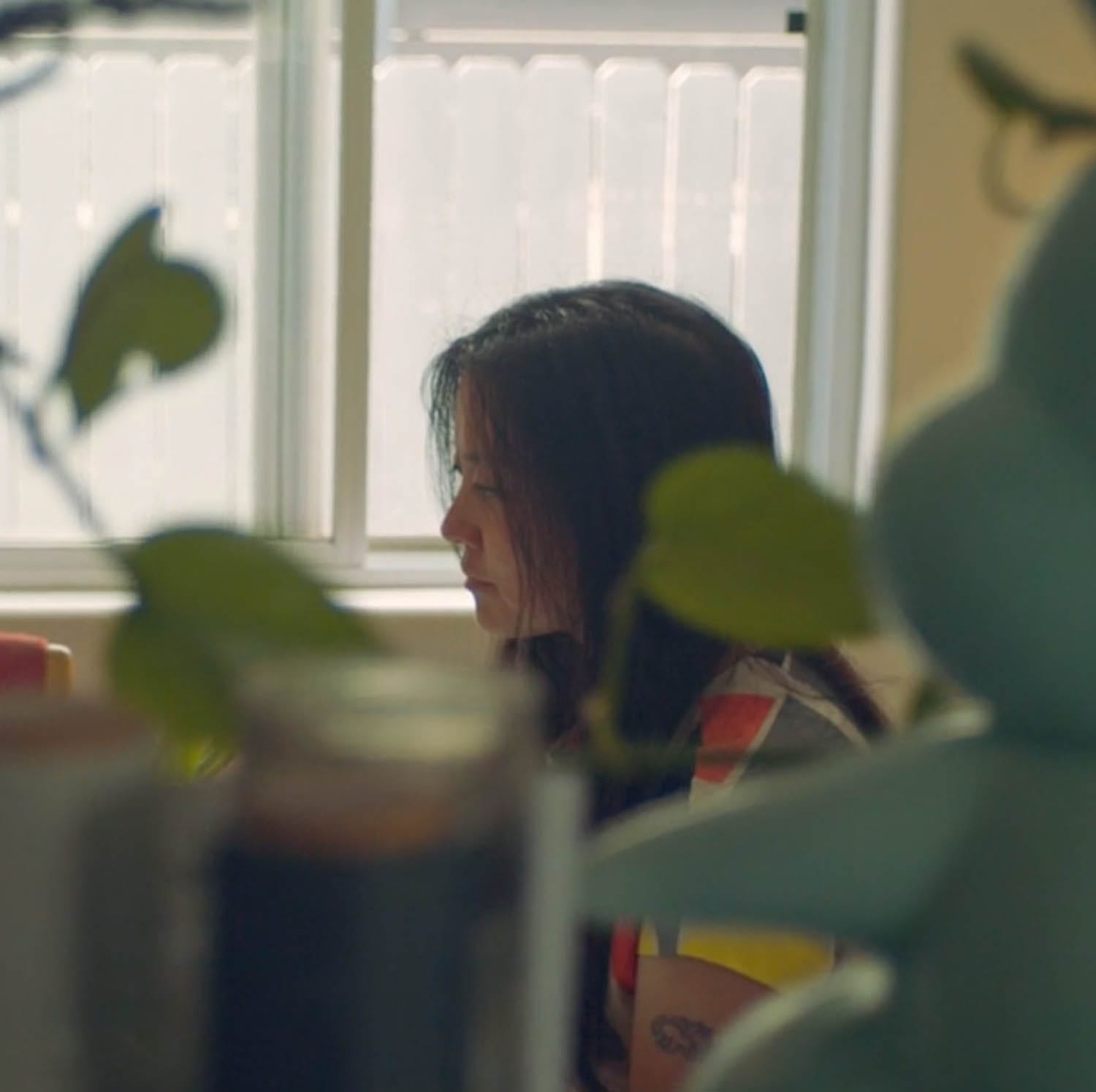For NeueHouse Venice Beach member Lucy Walker, living in Venice Beach goes hand-in-hand with working at the cutting edge of her craft and creativity as a filmmaker. With the house set to open in just a handful of weeks, NeueJournal sat down with Walker to hear about what drew her to Venice Beach, how the local community nurtures her creativity, and the journey to her latest project, the Netflix series adaptation of Michael Pollan’s How to Change Your Mind.
Join the new home for Venice Beach’s creators, innovators, and thinkers. Apply now to become a NeueHouse Venice Beach Salon member and join our creative community.
NEUEJOURNAL:
How long have you lived in Venice?
LUCY WALKER:
I moved here in 2008.
NEUEJOURNAL:
And how did you land in Venice Beach?
WALKER:
I grew up in London, did undergraduate in the U.K., and won a Fulbright scholarship to study film at NYU. I was in a band when I was in film school, and the first time I came to Los Angeles was on tour, in November, and we played two nights in L.A.
We were put in the Hollywood Roosevelt Hotel. At the time, the pool still had the squiggles on it that [David] Hockney had painted. So we sat with a couple of other low-rent, dirtbag musicians around the pool at the Roosevelt before it was remotely hip or cleaned up, and I just thought it was the most magical place on Earth.
There was this whole story that L.A. had no culture, and I thought, “Well, if you don’t see what’s here as culture, my goodness.” I found Hockney and the history of the art movements here fascinating. So I always saw culture and talent here. I always thought it was a hotbed of incredible creative forces.
I was also seduced by the beautiful, warm, sunny, vibrant, modern, clean, healthy lifestyle … it was November and you could swim in the ocean.
Around 2007 I had moved back to England to take care of my mother and there was a project that wanted me to be based here [in LA]. I thought, “You know, why not? That would be a refreshing, beautiful thing to do.”
At this point, I had sampled the different neighborhoods, and I was lucky because I could house-sit with different friends in different neighborhoods. And I just loved Venice Beach. Venice was for me, and I haven’t moved since then.
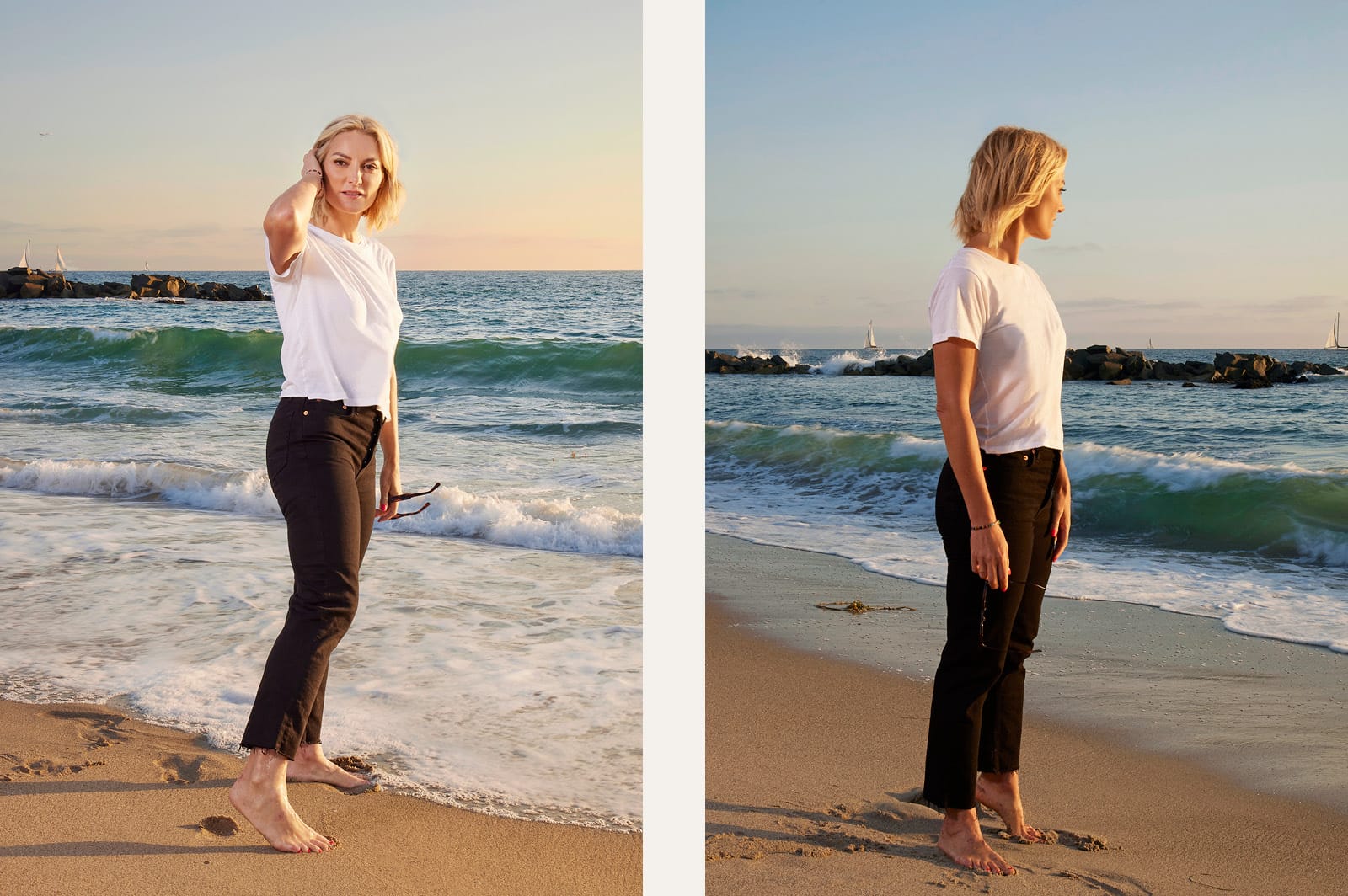
NEUEJOURNAL:
All these years later, what keeps you here?
WALKER:
I love it. There’s a couple of things. One is clearly the geography, with the ocean, because I swim. It’s fantastic. I just go right out and I’m acclimated. Outdoor swimming has always been a real joy and exhilaration for me because I’m very cerebral and kind of head-bound and intellectual. The opportunity to be in my body in nature balances that out.
The nature that you get here in Venice, the huge expanse of the beach is incredible —we’re in a city but we have this space and nature and fruit trees. Venice is this quiet, chill, peaceful place. And there is a creative vibe. It’s also the ultimate mixed neighborhood in Los Angeles. It’s got texture and grit, and its different communities.
Venice has always been, I think, a place of meeting an edge. There is something about the beach and the West Coast, as well, that’s always been forward-looking for me. It looks to the future. It’s a place of openness to new ideas, new possibilities. It feels very fresh and kind of breezy, and there is this incredible tradition of musicians and artists and architecture and all kinds of treasures here, as well as this feeling of recreation.
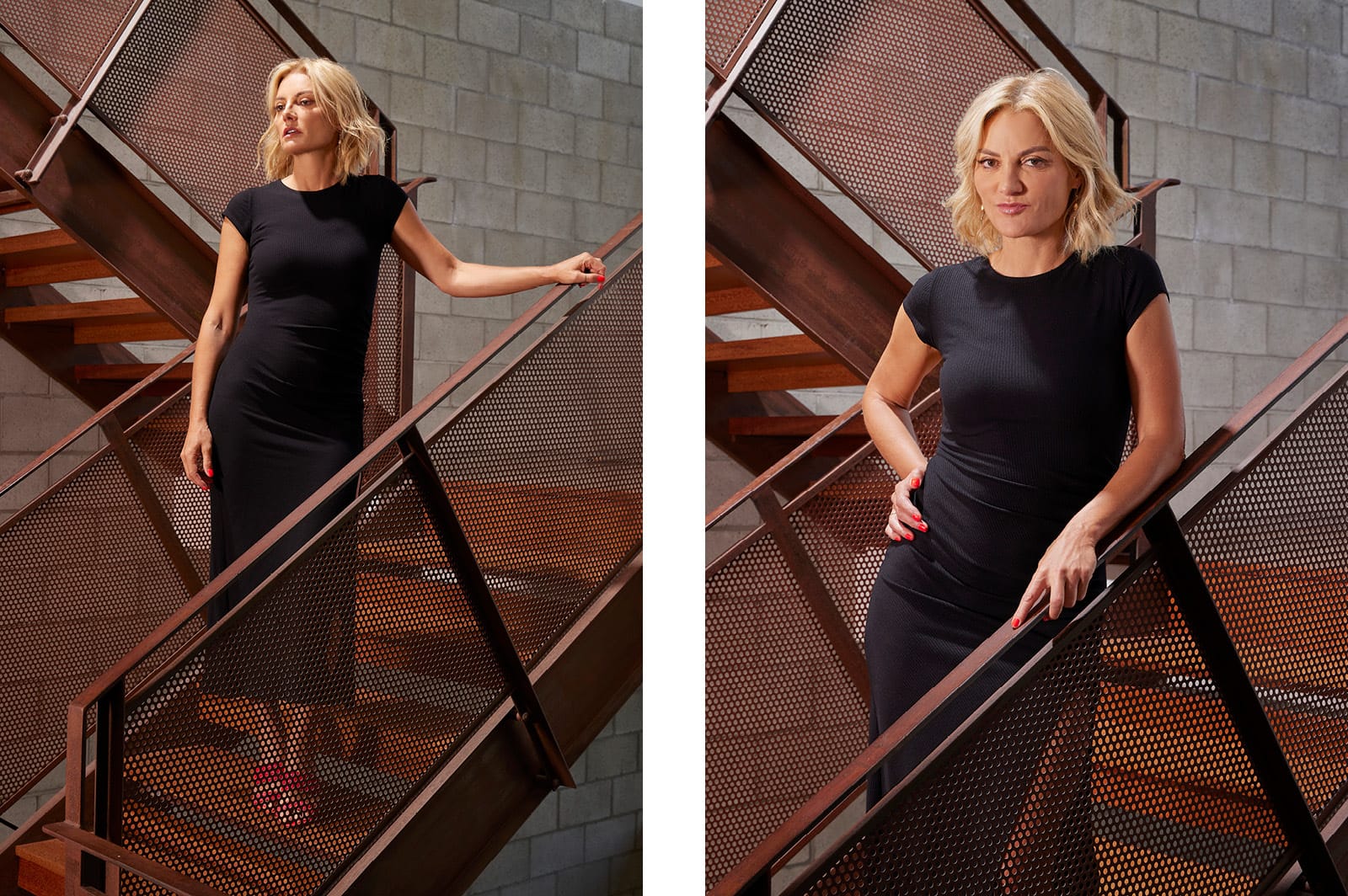
NEUEJOURNAL:
Do you feel like you have a local creative community, and, if so, what is that community like for you?
WALKER:
Absolutely. I think other neighborhoods have this, too — but I have Los Angeles friends and then I have Venice friends. There are so many great spots here to hang, and I’m so excited about NeueHouse opening. It’s going to be amazing to have a clubhouse. People come to Venice, it’s really its own special vibe. It’s a frequency that I feel very in tune with. I find it really thrilling to be in this place that is very much being written, being created by us now, looking to the future.
NEUEJOURNAL:
Let’s talk about your latest project, How to Change Your Mind. How did this project come onto your radar and why did you feel this was an important project to take on?
WALKER:
Well, I’ve been fascinated by psychedelics since I read Aldous Huxley’s The Doors of Perception at the age of 15. And a little bit like Venice or the West and California, I love the idea of exploration, expansion — and actually, there is this fantastic history of psychedelics and exploration in California. I started experimenting as a teenager with LSD and psilocybin, and even though I didn’t suffer from depression, I could feel that these molecules revitalized me and gave me fresh thoughts and good insights. So I followed the research. In 2009 there was an article saying that MDMA was showing promise for dealing with PTSD and I thought, “Totally. That makes perfect sense.”
In 2015, I read Michael Pollan’s New Yorker article called “The Trip Treatment,” about studies with psilocybin in cancer and end-of-life patients, and how helpful it had been with people with end-of-life existential distress and anxiety. I found it so moving. I called up Michael [Pollan]’s agent and asked if I could adapt it for the screen and his agent said no because he was going to write a whole book. So I said, “Can I do the whole book?” He did not say yes.
So I started developing my series on my own. Then, when I met Michael in person at this big psychedelics conference in 2017, I just thought, “This is going to be huge.” He had no idea how popular it was going to be, or that he was going to become the poster boy for the psychedelic renaissance, which he really became.
I looked around and there were quite a lot of filmmakers that were excited about making documentaries and I thought, My gosh, there is going to be a real cluster of projects in this space and I don’t want the noise of the different projects to drown each other out.
So it was really a thrill when Michael said, “OK, great, I want you to direct it.” Because I’d said, “Look, I want to do your book because I think it’s going to be the book. Or, I’ll just sit on the sidelines and help. But I don’t want to [compete with] your book because I think your book is going to be fantastic, and the adaptation is going to be the big thing that has a chance of really reaching people.”
We got greenlit the day before lockdown, so we made the show during the pandemic. I knew as well, with the pandemic, that there was going to be an even greater need for mental health resources, so I felt very motivated to try to make the show as good as it could be. And it’s a great opportunity with the Netflix platform because there’s such a tremendous audience. I felt I had a real responsibility to try to get the story right.
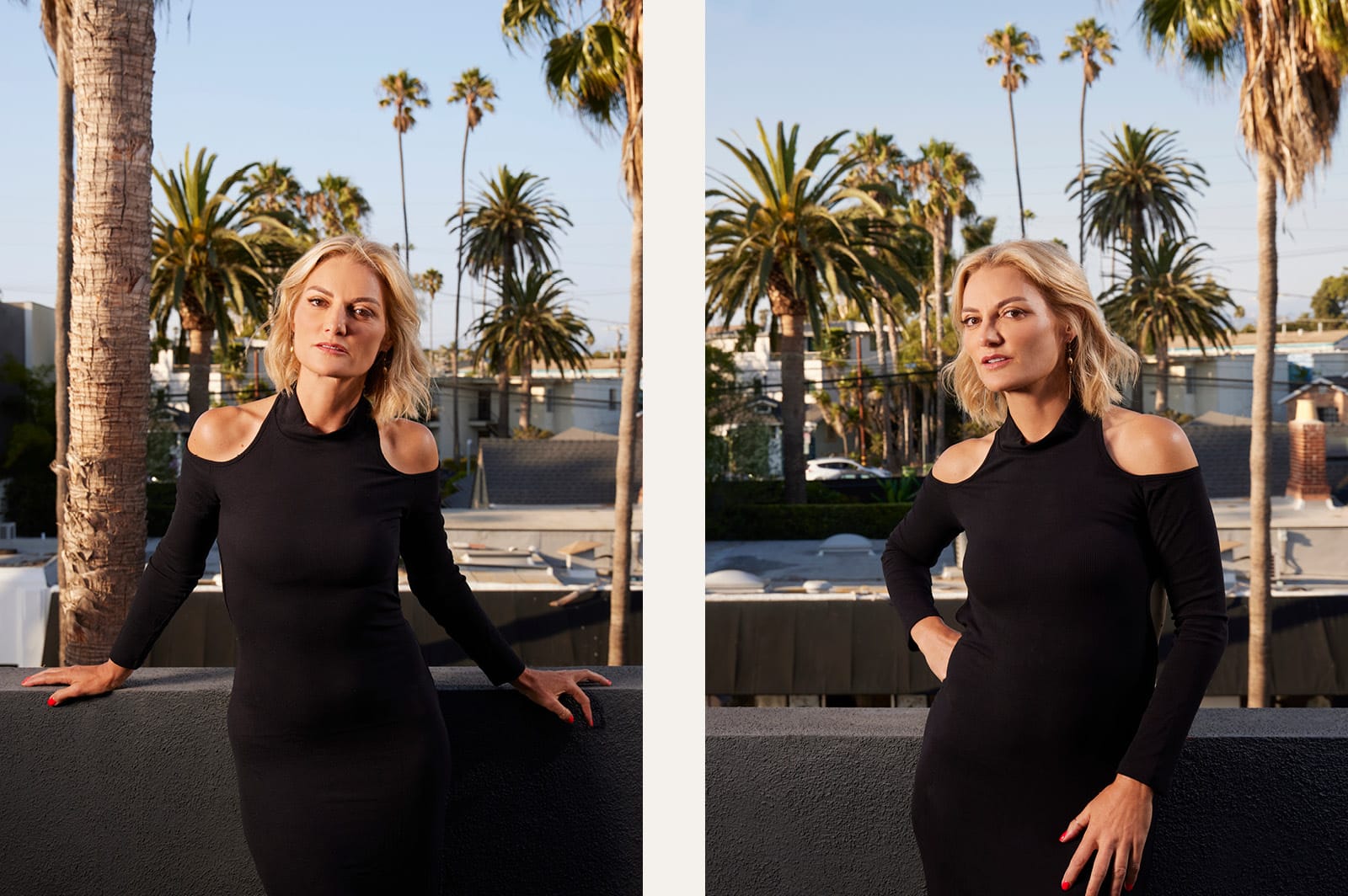
NEUEJOURNAL: How do you choose which project to pursue next?
I’m very much a filmmaker, so I want to make films that push the medium and push me, that challenge me to become a better filmmaker, to up my craft, and put things out in the world that I think need to be put out—I don’t want to make things that other people have made, or that the world doesn’t need more of. I think about the opportunity for impact, and the difference that I can make. I feel a tremendous sense of purpose and mission in making a difference, but also I’m an artist—I want to create beautiful things in my medium.
[Making documentary films] is like surfing. You are on the edge, looking at the water and seeing where the wave is and you start paddling. When you make these projects, they take years. So, you know, I started paddling, making this project in 2015 — and it comes out in 2022. A surfer will tell you, well, you have to start paddling for that wave quite a long time if you want to be riding it when it breaks. And I feel like that’s what I have to do with these projects as well.
